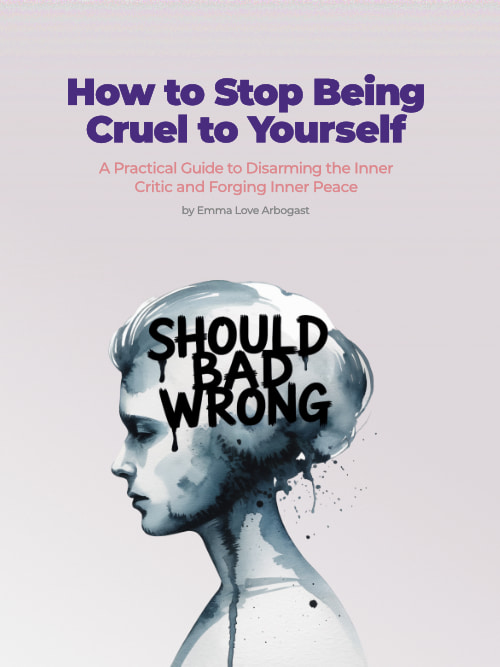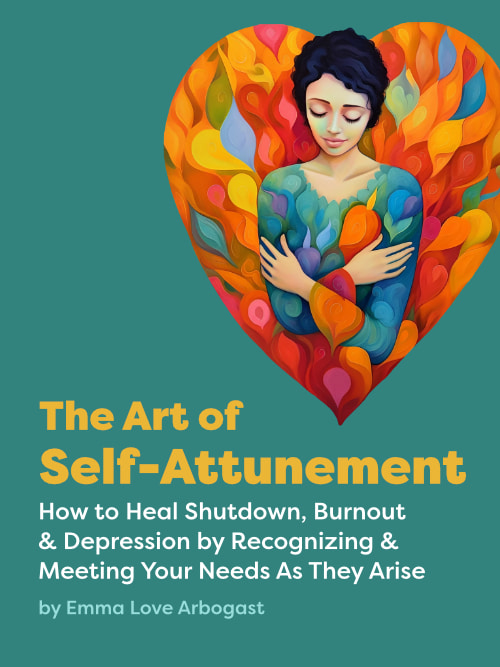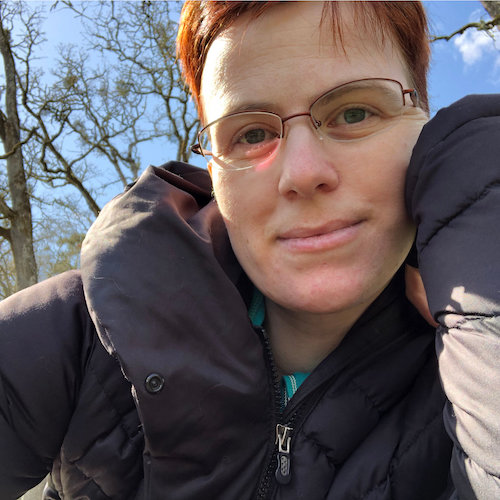How do I accept myself when I feel flawed or broken?
One of the major tasks of healing is self-acceptance.
While a lot can be gained by developing mindfulness and skillfulness, there is a fundamental peace and clarity that comes from accepting and meeting yourself where you are without judgment. Accepting our brokenness helps us heal.
We all judge ourselves
We all struggle with feelings of inadequacy. We worry that we are not good enough, smart enough, strong enough, talented enough, pretty enough, or far enough along in our life.
We wonder if we are too much: too emotional, too easily upset, too bossy, too critical, too gullible—take your pick.
These constant self-criticisms feel awful, so why do we keep doing them?
We reject ourselves to protect ourselves
As children, we got many messages about what was and wasn’t an acceptable part of ourselves. Because being rejected in our entirety would mean abandonment, we learned to hide the parts of ourselves that weren’t acceptable.
We gradually become more and more divided into the parts of ourselves we know others will approve of and the parts we keep hidden, eventually even from ourselves.
And what we can’t hide, we start to hate.
We want desperately for these parts of ourselves to just go away so we can finally have the sense of belonging and acceptance we crave.
Start where you are. It is enough.
Ironically, it is by accepting ourselves that we can finally feel the peace we want.
The mind invents many hurdles and tasks for us to pass before we can be happy. But we can actually begin to be happy exactly where we are today, even knowing there is so much more for us to learn and grow into. We can be happy on our journey by accepting who we are today.
Self-improvement can mask self-rejection
If you are spending a lot of effort to be a good person or be acceptable or do the right thing—you are likely avoiding something inside yourself you have not made peace with.
There are stages to how we deal with the qualities in ourselves that we don’t like or approve of.
Stage 1: Earning: Striving to be good (or rebellious-apathy)
Core belief: I’m bad, and only good people deserve love, so I have to keep trying to be good.
At first, we try to override the parts of ourselves we don’t like—anger, neediness, envy, self-doubt—by cultivating their opposites. We aim to be calm instead of angry, generous instead of jealous, disciplined instead of scattered. But this is usually a form of suppression. You might look like you have it together, but inside, you’re fighting a war with yourself because you can’t accept these qualities you deem as negative.
Some people, after failing to be “good enough” or feeling persistently rejected for who they are, swing the other way: Fine, I’ll be the bad one. They lean into defiance, rebellion, or numbness.
Core belief: I’ll never be good enough, so I might as well stop trying.
It can look like not caring—but underneath is often deep shame, grief, and an unacknowledged desire to belong or be loved without conditions. This stage isn’t freedom, although they might tell themselves it is—it’s a survival strategy. It protects against further hurt by pretending not to want what you think you can’t have. But within this pattern is still a belief that only good people deserve acceptance and love, which is why it feels out of reach.
Stage 2: Striving to be unaffected
Core belief: If I don’t feel negative feelings, I can’t be hurt by them.
In this stage, we try to distance ourselves from all of it. Instead of being good, we aim to be neutral—to detach, to not care, to rise above.
This is a form of control. It might seem like calmness, but it’s fragile. It takes effort to maintain. There is still a resistance to parts of your experience rather than understanding them.
This can seem like a more “spiritually evolved” form of repression. The person tries to transcend messy human experience altogether. It’s a kind of emotional perfectionism.
There is a version of this that we commonly call “spiritual bypassing”, where people will try to live in a belief that bad things don’t exist. It can be layered with self-congratulatory detachment, like:
- “I don’t need to feel anger because I’ve already forgiven everyone.”
- “This is just an illusion. I’m above this kind of drama.”
It delays healing, because it blocks honest engagement with pain.
Stage 3: Facing what’s really there
Core beliefs: It’s OK to feel pain or be flawed. I can handle reality. My feelings make sense if I listen to them. I can heal.
Real growth always comes from turning toward the pain and confusion.
In this stage, you stop trying to fix or avoid yourself and instead get curious about who you are. Your goal is not to change yourself, but rather to understand yourself. Why do I do the things I do? What need am I trying to meet?
You may find you need to grieve past experiences where parts of you were not accepted, or where you were excluded. Grief is the process of completing the past so you can let it go. Grief allows you to stop replicating the rejection you experienced in the past as self-rejection in the present.
Stage 4: Reframing the whole concept of “flaws”
Core beliefs: There was never anything wrong with me. I’m a complex person, just like everyone else.
In this stage, you realize that those “bad” parts of you were never bad. Our patterns are not wrong; they are adaptations to situations that hurt or fail to nourish us. They developed to protect you or get your needs met in environments that couldn’t support you.
When you can meet those parts with compassion, you stop trying to be someone else and start to truly care for yourself. You give yourself what you need to be happy, including self-acceptance, self-love, and self-appreciation.
Eventually you forget about the whole idea of good and bad and flaws and perfection because they just don’t matter. You exist, as a whole being, and you contain multitudes. You just are content to be yourself, to do your thing, to live your life.
You no longer treat yourself like a project.
Self-Acceptance Is the Transformation
This process is often transformative of the very patterns we initially tried to change through self-judgement (which only entrenches them). This is paradoxical, but I’ve experienced it many times.
Other times, we come to realize that these things are just part of how we are wired. This is often the case with neurodivergence—there are things about me that many people judge as flaws, but I stopped doing that, because they are just how my brain works. Instead, I learned to work with them and appreciate myself as a whole person.
This process of releasing self-judgement and accepting yourself just as you are unlocks the energy and aliveness that you had previously been expending trying to fight yourself and hide who you were from others and yourself.
It also unlocks joy. You can’t feel fully joyful if you’re sitting there thinking there’s something wrong with you, or thinking you have to change to deserve happiness.
There is also just a sense of peace and wholeness that you can never attain through achievement. It lets you just exist, with no sense that there is anything else that you need to do or be.
Self-love is a set of skills you can learn

Stop Being Cruel to Yourself
$2.99


Hey there! If you're new here, welcome to the Emmaverse! 🌈✨
About me: I'm autistic/ADHD and I write about how to be free and happy from the inside out.
Keep in touch?
Self-Liberation Society


hi emma
i am really enjoying your website and your warm and compassionate tone. Am also a fan of John Welwood and his lovely book; the chapter on developing presence has been super helpful in enabling me to face my emotional states
the journey of healing can at times feel frightening, wearying and isolating, alongside moments of deep joy and connection to as the heart opens ever more deeply
blessings to you and thankyou for the support
jennifer
Hi Jennifer, thanks for visiting and I’m glad you liked the article. Thanks for saying hello and I wish you the best in your journey. 🙂